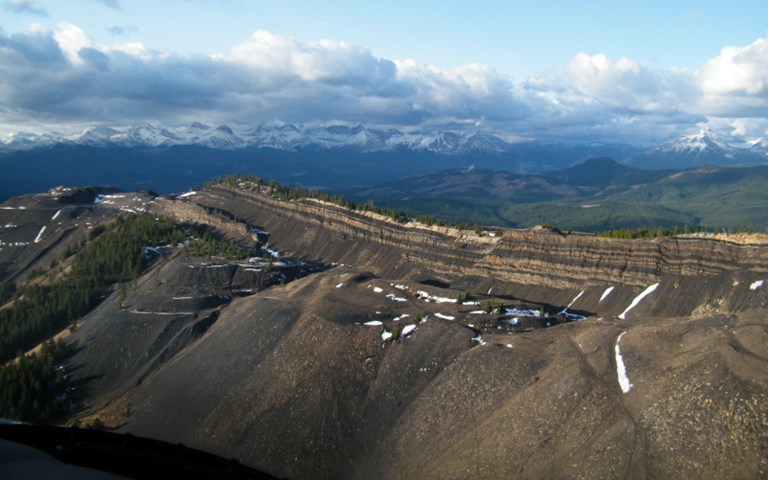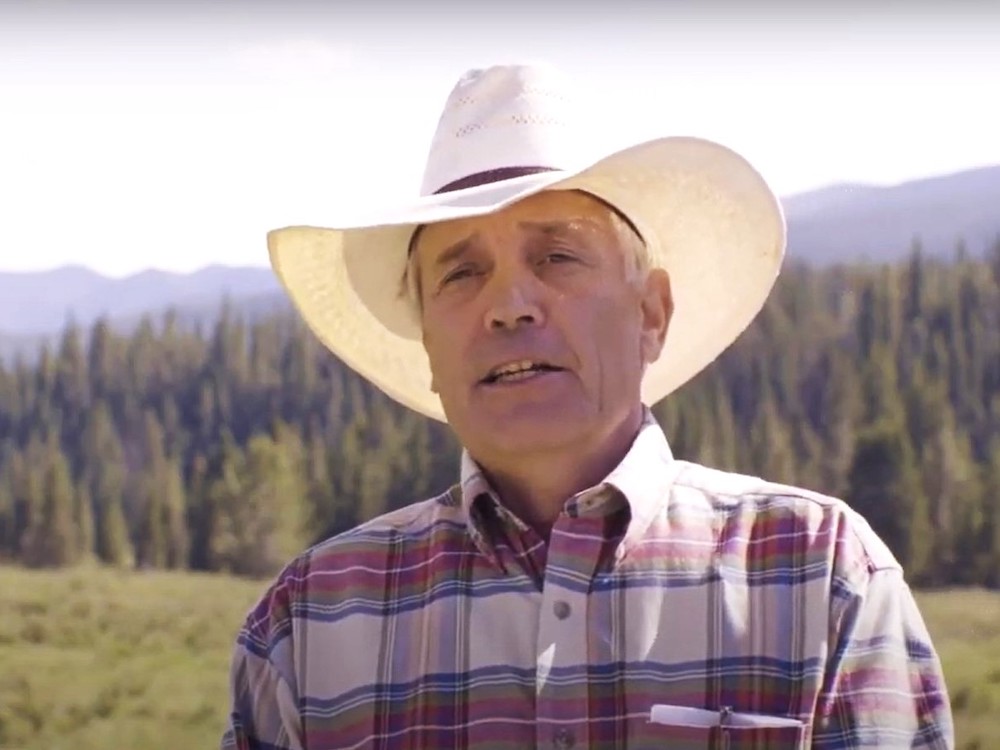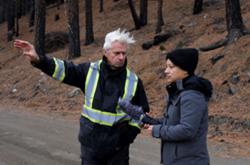How can an Australian open-pit coal mining project unequivocally denied by a joint review panel as well as two courts of appeal still be regarded as an “advanced coal project” by Alberta regulators?
That’s the surreal question bedevilling lawyers and hundreds of thousands of Albertans firmly opposed to any open-pit coal mines in the Rockies — a critical watershed for Canada’s drying prairies.
Just two years ago, concerted protests by Alberta ranchers, municipal districts, irrigators, artists and conservationists forced the highly unpopular government of Jason Kenney to seemingly reverse its controversial plans to revoke 45-year-old protections and open the Rockies to Australian coal miners.
Opposition proved so fierce and widespread that the government not only halted its pro-mining push but then struck a Coal Policy Committee that same year — complete with public hearings.
The committee’s principal recommendations that no coal mining occur until land use planning has been completed later formed the central directions of a ministerial order in 2022 that banned coal mining in the eastern slopes of the Rockies.
That order specifically directed the Alberta Energy Regulator that no new coal mining activities or applications will be permitted on Class 1, 2, 3 or 4 lands as defined in Alberta’s 1976 Coal Development Policy “with the exception of lands subject to an advanced coal project.”
The ministerial order defined an advanced coal project as one in which a developer “has submitted a project summary to the AER for the purposes of determining whether an environmental impact assessment is required.”
But the last time the Grassy Mountain project submitted a summary and EIA was in 2015. In 2021, a joint panel review representing federal and provincial regulators firmly rejected that project by an Australian outfit called Benga Mining.
The panel concluded that the project’s economic, wildlife and water impacts were not in the public interest.
Two courts of appeal then upheld the decision.
Gina Rinehart’s boomerang
In response to that resounding application denial, Australian billionaire Gina Rinehart renamed Benga Mining by calling it Northback Holdings, which her global company Hancock Prospecting owns.
She then appointed a new CEO, hired a Toronto lobbying firm and in September applied for new permits to divert water and explore for coal with the intent of resurrecting plans for a massive open-pit coal mine in the headwaters of the Oldman River.
That megaproject borders on coal leases owned by another Australian firm, Atrum Coal, which would have gained railway access through Grassy Mountain.
United Conservative Party Energy Minister Brian Jean now says that Rinehart’s Grassy Mountain project is exempt from the ministerial order that seemingly killed it because the AER defines it as an “advanced coal project.”
His comment followed aggressive lobbying by Rinehart and the Coal Association of Canada in the past two months.

Nigel Bankes, a prominent regulatory lawyer and retired University of Calgary law professor, calls the Alberta government’s position totally preposterous and illegal.
“I don’t see how it can be legal. It was an advanced coal project. The application came before a joint panel review in 2020. The AER was part of that panel review. They denied the application in 2021. In my view there is no way it can be considered an advanced project. To me that’s the end of it. The AER should never have accepted the application.”
In response to Tyee questions about the legality of the AER’s actions, the regulator’s spokesperson Theresa Broughton explained that a denial of an application doesn’t really stop a project’s prospects.
“Northback previously submitted a project summary and an Environmental Impact Assessment Report,” explained Broughton. “While that project summary and EIA was submitted for its previous coal mine applications (Benga Grassy Mountain), that project summary and EIA can be used for any future applications for coal development.”
Broughton added that “if an applicant meets AER requirements, including the requirements under the Ministerial Order, the AER cannot prohibit a company from filing an application.”
Dead or just resting?
“Really?” replied Bankes when presented with Broughton’s words leaving the door open for Northback’s play. Incredulously he asked: “A project summary and the EIA for that project remain alive forever even if the project for which the summary and the EIA was prepared was rejected by the AER sitting as part of the joint panel review and the EIA found to be deficient?”
Bankes than asked: “How can that possibly be a reasonable interpretation of the MO? Put simply, once rejected there is no longer a project. Benga/Northback may still have leases but the particular project for which they submitted a summary is a dead parrot. It is not simply resting.”
Indeed, the AER’s position almost parodies Monty Python’s famous Dead Parrot Sketch in which John Cleese tells a disgruntled customer that his dead parrot is not dead, “only resting.” (Watch the skit.)
By arguing that a rejected project automatically qualifies as a live advanced project, the AER effectively mocks the spirit and recommendations of the coal committee report, adds Bill Trafford, a landowner and member of that committee.
“It was clear that Albertans wanted to stop coal mining on the eastern slopes until at least such time as the required land use planning was complete per the Alberta Land Stewardship Act legal requirements,” Trafford told The Tyee.
“The ministerial order confirmed that,” he added. “The AER is overstepping their mandate by misinterpreting the intent of carving out advanced coal projects. The intent was only to allow mines in the regulatory process to continue. In no way is Grassy Mountain in any regulatory process once the province and federal governments stopped the mine proceeding.”

The committee report also noted that Albertans have a history of not trusting the government or the AER on coal promises: “Albertans are concerned that coal policies can be easily overridden when many thought that these policies were legally binding.”
The committee’s final report also defined an “advanced coal project” as one “that has formally applied for authorization to mine.” It did not consider projects in exploration stages to be advanced coal projects.
In its response to Tyee questions, the AER also argued that the ministerial order “applies only to public lands, not private land.”
The AER added that “some of the activities applied for in Northback’s exploration applications are proposed to occur on private lands. If Northback were to withdraw its exploration application for public lands, the AER would still consider the applications for drilling on private lands.”
Bankes also called that argument ridiculous: “This is absolute nonsense. There is nothing in the MO to support this interpretation. Furthermore, the Coal Conservation Act, like the Oil and Gas Conservation Act, applies to all lands in the province. It is not a property statute, it is a regulatory statute.”
The Alberta Energy Ministry did not respond to The Tyee’s queries.
‘Time to start hollering’
The Alberta government’s position that a denied application qualifies as an “advanced coal project” has infuriated Albertans of all stripes.
Country music singer Corb Lund, who battled the Kenney government’s coal plans, has called the latest development outrageous and is encouraging Albertans to file their objections with their MLAs and the regulator.
“There’s basically nothing in this deal for Alberta except ruined mountains, contaminated water, and a massive clean-up bill. A handful of jobs is not worth the downstream effects of this. And the majority of Albertans have expressed this in poll after poll. It’s time to start hollering at the government again, so let ’em have it,” Lund has declared.
Gordon Cartwright, a local rancher and member of the range-preservationist Pekisko Group, also expressed his outrage in a letter to the regulator. “Is our regulator going to entertain a dubious legal ploy to trammel on the values of Albertans, and our vital interest in water conservation, as a trade for votes from the coal mine community of the Crowsnest pass; the ploys of an Australian mining dominatrix; and the business-as-usual ethic of former Environment Minister Robin Campbell?”
Campbell joined forces with Kenney’s environment minister, Jason Nixon, to openly promote and welcome the efforts of Australian companies to mine the Rockies for steelmaking coal.
Lorne Fitch, a retired Alberta Fish and Wildlife biologist who lives downstream from the proposed mine, is dumbfounded by the government’s no-never-means-no position on the coal mine.
“The fumbling by the AER and the government of Alberta on this file defies belief and suggests several things. Is there an attempt to subvert both the ministerial order and AER process?” asks Fitch. “It raises serious questions on whether lobbying efforts have been successful at circumventing government policy related to coal exploration and development.”
The AER, a regulator entirely funded by industry, has been criticized for internal conflicts that undermine public interest protection. The regulator, for example, manages the liability for closing coal and oilsands mines, a program the auditor general has called flawed and inadequate.
Those liabilities recently jumped from $33 billion to $47 billion with no change in security deposits for the cleanup costs. In fact, the AER has collected only 3.5 per cent of the total estimated cost of mine closures for both industries. ![]()
Read more: Energy, Alberta, Environment

















Tyee Commenting Guidelines
Comments that violate guidelines risk being deleted, and violations may result in a temporary or permanent user ban. Maintain the spirit of good conversation to stay in the discussion and be patient with moderators. Comments are reviewed regularly but not in real time.
Do:
Do not: